Filmmaker 5 with Lise Akoka and Romane Gueret: The Worst Ones
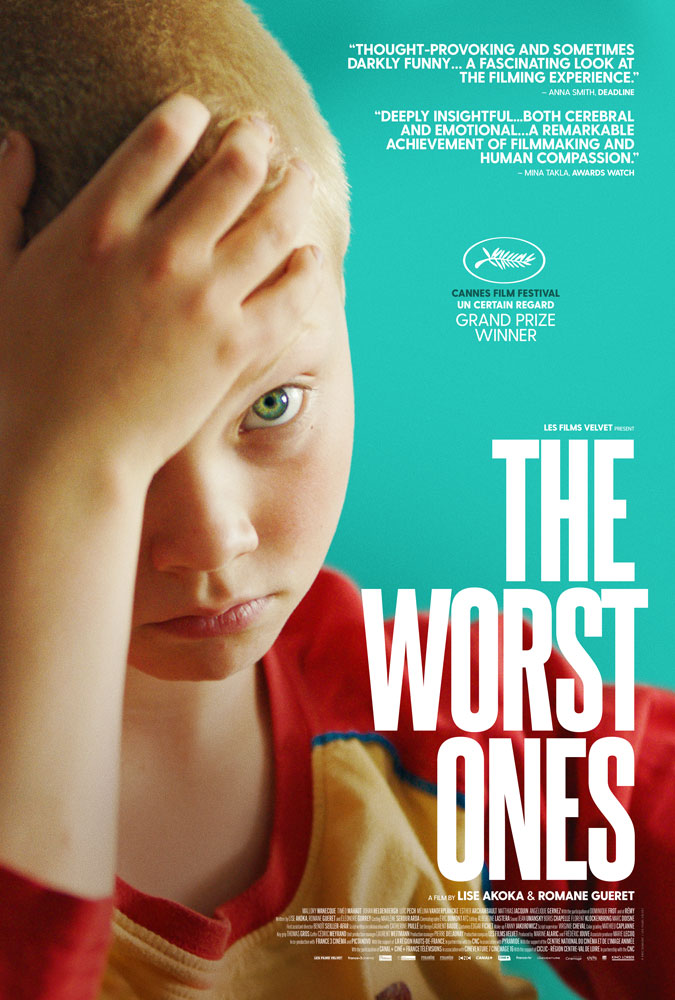
The Worst Ones captures a film within in film, following the production of a feature whose director uses local kids as his cast. Set in the suburbs of Boulogne-Sur-Mer in northern France, director Gabrielle, played by Johan Heldenbergh, aims to capture gritty authenticity as he hand-picks and casts four working class teenagers from the local Cité Picasso housing project in his movie. As the director and crew audition, rehearse, film, and interact with their inexperienced cast, jealousies emerge and lines blur between the film and real-life.
Winner of the top prize in the Un Certain Regard section of the 2022 Cannes Film Festival, The Worst Ones announces directors Lise Akoka and Romane Gueret as exciting new voices in French cinema. Our Classic Couple Academy interview with Lise Akoka and Romane Gueret about The Worst Ones as their entertaining and thought-provoking first feature film follows.
Filmmaker 5.1: You two met during a feature film casting where you auditioned over 4,000 young, non-professional actors. How did your past casting experience—especially working with kids from difficult backgrounds—influence how you directed your cast?
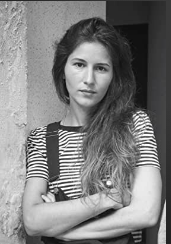
Lise Akoka: It more than influenced it because it was actually the starting point, which led us to make this movie for both of us. We met two kids that had a deep impression on us while we were casting them and that made us want to write a movie for the two of them. And that led to our first short film which talks about that experience. It’s a movie within a movie about casting. And this one—The Worst Ones—is a continuation or an extension of that first experience in the sense that instead of stopping at the time of casting at the casting stage, it goes on to talk about the shooting as well.
Filmmaker 5.2: How did your experiences as filmmakers show up in the character of Gabriel, the filmmaker in the film itself?
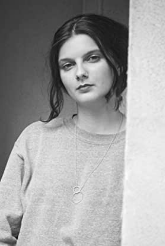
Romane Gueret: While Gabrielle is a little bit like us, all the characters in the movie are a sort of blend among all kinds of different sources of inspiration. We’re talking about filmmakers that we’ve worked with, and other filmmakers that we’ve heard about. We’ve heard things about them from crew members that had worked with them but also with our own practice and our own approach to filmmaking.
When we made our first short Chasse Royale, there were places places and stages where we found challenges that were hard for us to juggle in terms of ethical issues when you’re working with children and on top of that with children from an underprivileged background. All these things are what allowed us to work on Gabrielle’s character, and we wanted to become part of a critical approach. Filmmakers tend to be in men in the vast majority, and we didn’t want to betray this reality. It’s not very interesting to talk about what doesn’t work with mankind without seeing any nuances, any ambiguity. We just wanted to have the audience perceive in him the love for those kids, the admiration, and how much he cared, even though occasionally he would cross the boundary and allow his emotions to take over.
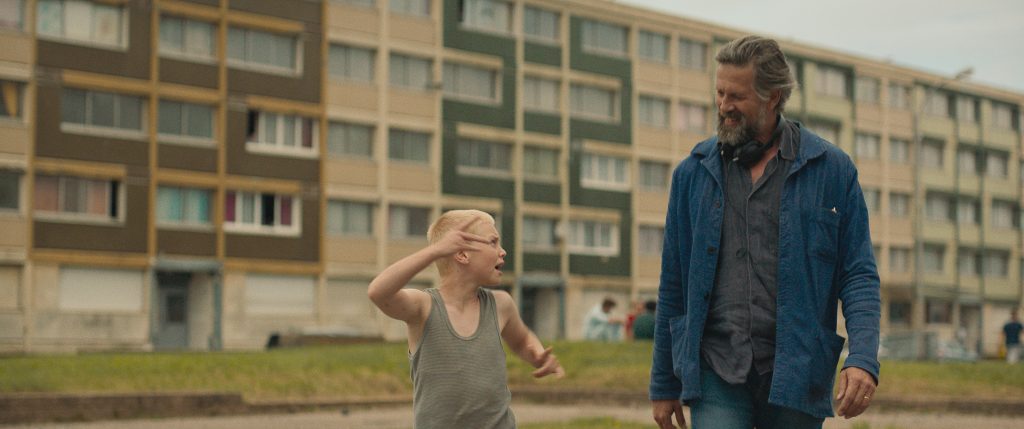
Filmmaker 5.2: Your short film and now this feature both explore marginalized youth. How is this an important theme for you? What draws you to it?
Lise Akoka: It’s a mix of the political and sociological sensitivity that locates us at that level and also more personal intimate issues come into play that are connected to our own personal histories.
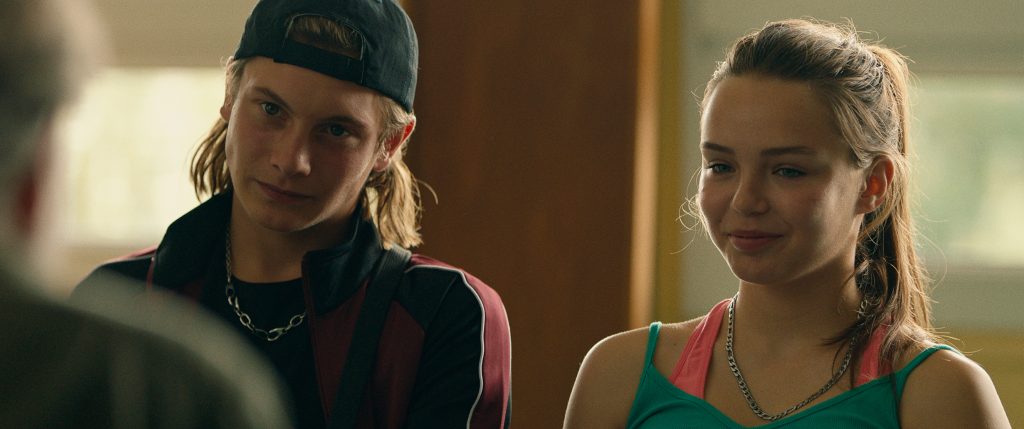
Filmmaker 5.4: Can you share a standout moment you experienced in filming The Worst Ones?
Lise Akoka: I think that the moment that comes up for both of us is the same and it’s the shooting of that final scene. The very last thing seen in the movie, which is a moment in which the actors that play those roles truly blossomed. It’s truly when they came into their own as actors and it was a deeply touching a deeply moving for all of us. Which sort of mixed reality and fiction in our film and in the film of Gabrielle. So, it was a very strong moment for all of us.
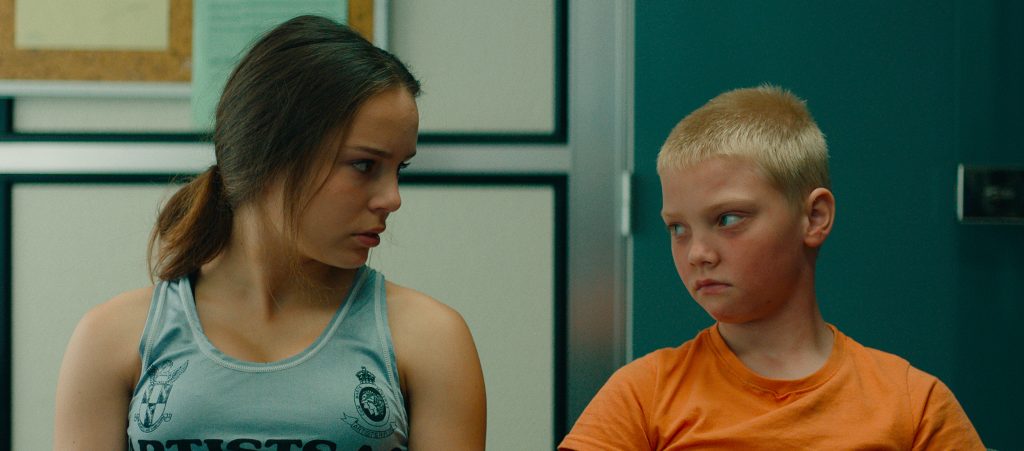
Filmmaker 5.5: The film in its very title is provocative and indeed captures some community conflict about “the worst ones.” What conversations do you wish to inspire with this film?
Romane Gueret: I feel that the title is summed up really well in the scene in the movie that takes place in a cafe. It’s a party scene in which multiple points of view are shared and they’re very different from each other. And there’s representation of the world of cinema and the world of social workers that work in group homes with those kids on a day-to-day basis. The attitude she has is the same attitude that we have, and then other people don’t share that and we wanted to give voice to that as well. We want to have an opportunity for everybody to express their opinions and their feelings.
Some people think that it’s not the sheer fact that some people exist, that doesn’t entitle them to be shown. And we don’t believe that at all. This brings to mind a letter that we received when we were doing screen casting and a letter that came from the school board in which they asked that we place the whole education setting in a specific area. And they said we don’t understand what kind of film you want to make. We don’t believe that the sheer fact that these kids exist means that they must be shown. Well, that made us want to do exactly the opposite. We want to show the worst ones, so to speak. They become the heroes in our cinema.
